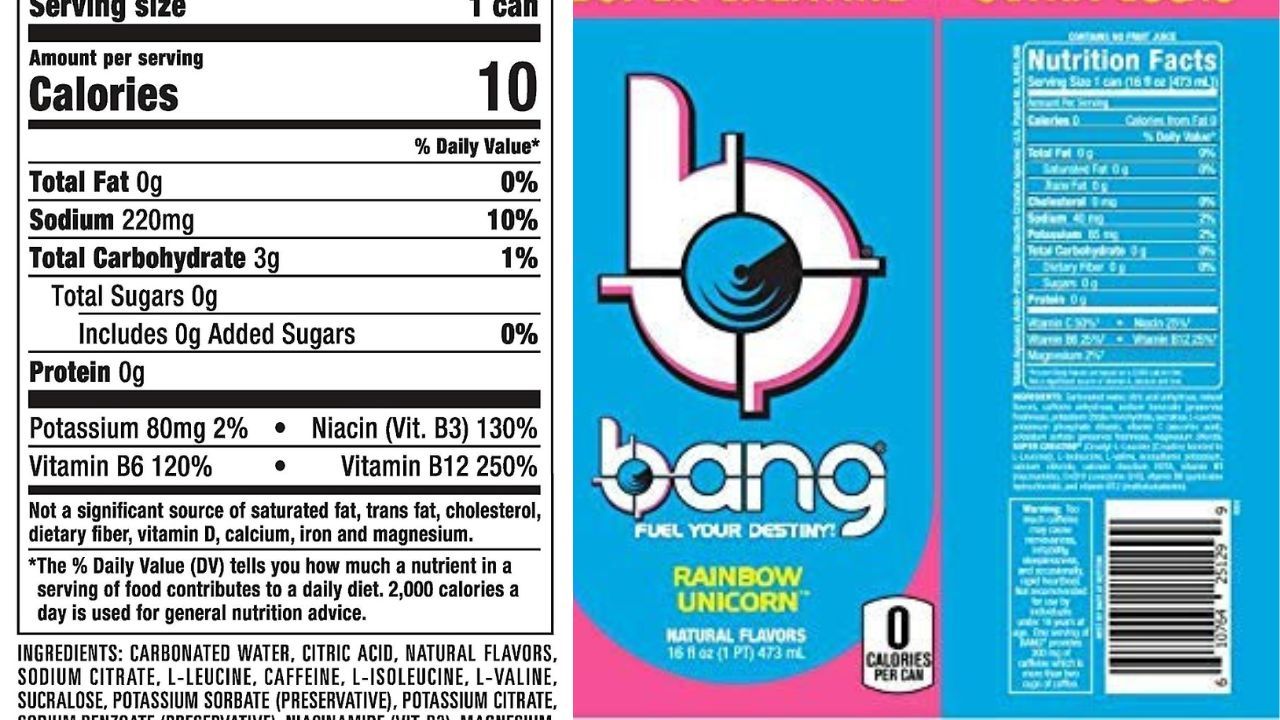Unlocking the Energy: The Science Behind Energy Drinks
Discover the electrifying world of energy drinks and how they work...You must read to see!

In today's fast-paced world, it's no wonder that many people rely on energy drinks to fuel their busy lives. These colorful cans promise an instant energy boost and improved performance, but have you ever wondered how they actually work?
In this blog post, we'll delve into the science behind energy drinks to uncover the secrets behind their energizing effects.
Caffeine, the Mighty Stimulant
At the heart of most energy drinks lies caffeine, a powerful stimulant that targets the central nervous system. Caffeine blocks adenosine receptors in the brain, which are responsible for promoting sleep and relaxation.
By inhibiting these receptors, caffeine keeps us alert and awake, providing the much-needed energy boost. Energy drinks typically contain higher caffeine levels compared to a regular cup of coffee, intensifying their stimulating effects.
Sugar Rush and Carbohydrate Content
Alongside caffeine, energy drinks often pack a punch with their high sugar content. Sugars like sucrose and glucose provide quick energy by rapidly increasing blood sugar levels. This sudden spike triggers the release of insulin, which allows the body to absorb and utilize the sugar for energy.
However, it's important to note that excessive sugar intake can lead to a crash later on, leaving you feeling even more tired than before.
Taurine: More Than Just an Amino Acid
One ingredient that often pops up in energy drink labels is taurine. Taurine is an amino acid naturally found in our bodies, particularly in the brain, heart, and muscles. Although its exact mechanisms are not fully understood, taurine is believed to play a role in regulating cellular processes and electrolyte balance.
Some studies suggest that taurine may enhance exercise performance and reduce exercise-induced muscle damage, contributing to the overall energy-boosting effects of energy drinks.
B-Vitamins for Metabolism
Energy drinks frequently contain a range of B-vitamins, including niacin, riboflavin, and vitamin B12. These vitamins are essential for converting the food we consume into energy during the metabolic process.
While the quantities found in energy drinks may exceed the recommended daily intake, their presence helps support the body's energy production systems.
Additional Herbal Extracts and Supplements
In addition to the key ingredients mentioned above, energy drinks often incorporate herbal extracts and supplements like guarana, ginseng, and L-carnitine. Guarana contains caffeine, amplifying the drink's stimulating effects.
Ginseng is believed to enhance mental focus and reduce fatigue, while L-carnitine is involved in energy metabolism. However, the actual effectiveness of these additives is a subject of ongoing research and debate.
Energy drinks have become a popular choice for those seeking an instant energy boost. By combining caffeine, sugar, taurine, B-vitamins, and other ingredients, these beverages aim to enhance alertness, increase stamina, and improve overall performance.
However, it's important to consume them in moderation, as excessive intake can lead to negative effects such as jitters, insomnia, or even adverse health outcomes. Remember, true and sustainable energy comes from maintaining a healthy lifestyle, including regular exercise, balanced nutrition, and sufficient rest.
If you are interested in purchasing an energy drink and you do not know which energy drinks to choose from then click the button below to see which energy drinks that we have researched and reviewed just for you!

